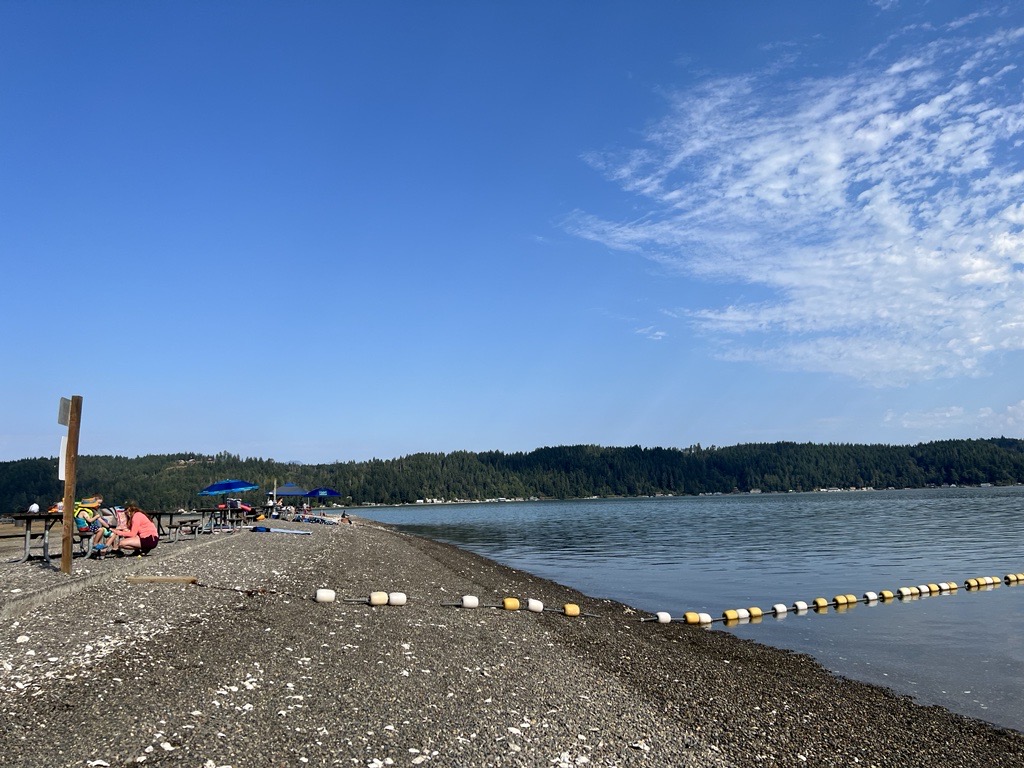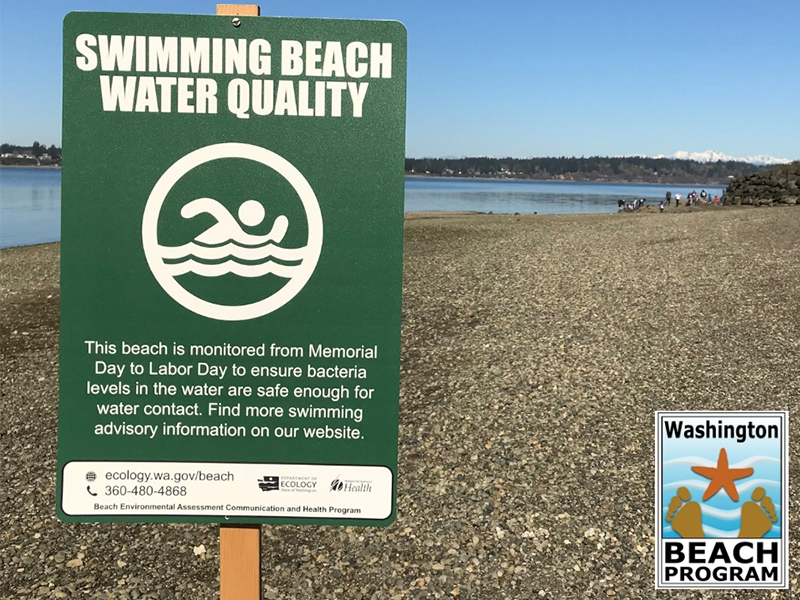
Visitors at Twanoh State Park in Mason County
Throughout the 2022 summer swimming season, the Beach Environmental Assessment, Communication and Health — or BEACH— program coordinated bacterial testing at 59 popular Washington beaches across Puget Sound and the coast.
BEACH checked for fecal bacteria in the water to make sure samples met our safe swimming standard. Most beaches passed, meaning they had low levels of bacteria in water samples. Overall, 91.5 percent of the beaches that were monitored met the swimming standard and stayed open for safe swimming all season.
How did your favorite swimming beach fare? A year-end county-by-county beach-by-beach wrap-up of all 59 beaches is now available as the BEACH program 2022 annual report.
2022, a huge improvement from 2021!
Overall, 15% more beaches stayed open in 2022 than the previous year. This was a noticeable rise in passing beaches. Fewer advisories and closures at Washington beaches mean more days to enjoy the sun and escape the heat in cool Washington waters.
The previous summer saw an unprecedented number of advisories and closures following the heatwave event from June 26 – July 2, 2021, and the summer of 2022 was less severe.
Wait, did you say fecal bacteria?
Yes. Fecal bacteria is usually found in feces, or poop, from animals, like humans, dogs, seals, and seagulls.
Anyone who uses marine beaches for recreational purposes like swimming, scuba diving, surfing, or kayaking can be exposed to illness associated with water contaminated by poop. Even being in contact with the sand while beachcombing or shellfishing can pose a risk if bacteria levels are high.
Contact with fecal-contaminated waters can result in gastroenteritis, skin rashes, upper respiratory infections, and other illnesses. Children and those who are immunocompromised may be especially vulnerable to waterborne illnesses.
Because of this, our scientists test levels of enterococcus, a type of fecal bacteria, in the water to ensure that our beaches are safe for swimming and other water-contact recreation.
Stay healthy at the beach
Look for our signs when you visit your favorite beach. Know the status of your beach before you go by checking our swimming map. We update the map weekly between Memorial Day and Labor day. Remember to bookmark it and tell your friends.
Reduce your risk of becoming sick from contaminated waters by avoiding swimming when you aren't feeling well, especially with gastroenteritis (stomach flu) symptoms. Shower after swimming, and wash your hands regularly, especially before eating. See more on swimming safely at our website.
Each of us can help keep our beaches clean and open by picking up trash, cleaning up after our pets, and by not feeding wildlife. See more tips here: Keeping beaches clean.
Get ready for summer
In 2023, the BEACH program will, once again, sample for fecal bacteria beginning the week of May 22, through the week of Sept. 1. The annual report may give you some idea about past problems at your beach. Please contact BEACH if you have any questions about the 2022 results or the upcoming 2023 sampling season. We are here to help!


